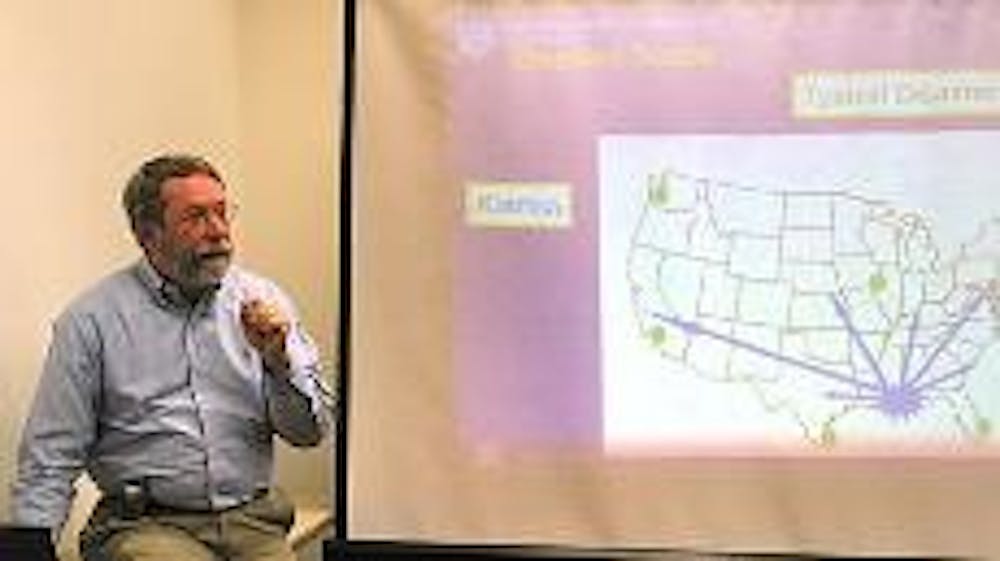When social worker Julie Guyot waited for clients in her crisis-counseling tent in Pass Christian, Miss., in November 2005, no one came to her because no one was sick and no one thought they had a problem, she said.
Guyot, a doctoral scholar at Howard University, spoke to students at AU on Tuesday at a discussion titled "Psychological Healing from Hurricane Katrina: Where Do We Go from Here?" The event was sponsored by Psychology Students for Social Responsibility and the College of Arts and Sciences' Graduate Student Council.
To reach out to people who had been displaced by Hurricane Katrina, Guyot walked around the periphery of the camp, creating art projects and inviting people to join her.
"I think it's really important where people are concentrating on all that they've lost to remind them of their capacity to put things together in a new way," she said.
One art project Guyot began was a mosaic she displayed outside of her counseling tent. With her clients, she would collect debris surrounding the camp, including linoleum, porcelain and pottery fragments. Together, they washed the debris and glued the pieces together to spell the word "hope."
The community Guyot worked in was devastated, she said.
"The level of devastation is profound, but the need to move beyond that and see the capacity within people" is what mental health professionals can offer to trauma victims, Guyot said.
Erin Bumgarner, a senior in CAS, moderated the discussion. She said she had a personal interest in the trauma endured in the aftermath of Katrina because she had experienced a house fire when she was younger.
She said she would like to see students across academic disciplines come together to promote mental health and disaster preparedness.
"The issues are much larger than mental health," Bumgarner said.
For example, economics students can help with mental health issues by addressing the poverty issues faced by many of those affected by Hurricane Katrina, Bumgarner said.
Addressing the psychological trauma following disasters is extremely important, said Brian Flynn, who served as the assistant surgeon general and as a mental health consultant to families of victims of the Columbine shootings and the Sept. 11, 2001 terrorist attacks. According to Flynn, the psychological trauma resulting from disasters can range from 400 to 500 times as much as the physical impact of disasters.
Flynn said it was important to prevent physical disasters in order to avert the resulting trauma. Predictable disasters are among the situations that should be anticipated and prevented.
He stressed the importance of beginning a dialogue about preparedness as soon as possible. He said such a dialogue should include voices from a variety of fields, including law, economics and religious work.
"If we don't do this right, the costs are huge," Flynn said, and may include fear, suffering and a potentially severe social and economic collapse.
Leah Moriarty, a sophomore in the College of Arts and Sciences studying psychology, said Flynn's comments resonated with her.
"Rather than using psychologists once a disaster occurs, it is important to use their expertise in preventing disaster in the first place," she said. "Psychologists teaming up with architects, city planners, etc., is also a really novel idea"





